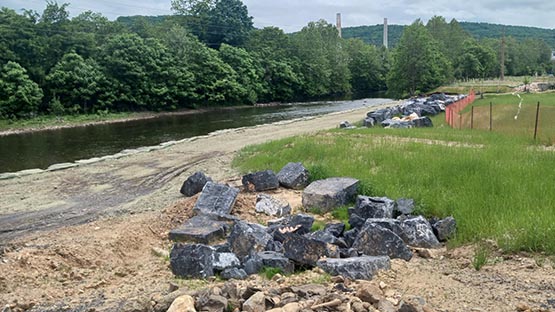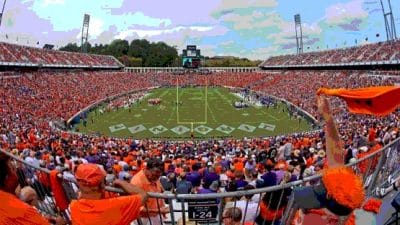
You’re getting ready in all likelihood to hand over the roads reins to a Republican successor with Bob McDonnell’s seemingly insurmountable lead in the governor’s race a week out from Election Day.
You know well the work that has been done, the work that is yet to be done.
What do you tell your successor in the debriefing that is to come in the winter transition?
“Management matters,” Homer told me as his answer to my hypothetical question. “You’ve got to pay attention to and give authority to professional managers to professionally manage a transportation program. There is a line between policy and politics on one side and the efficient and effective management and administration of a program on the other side. Having respect for that boundary is essential to a successful and transparent and citizen-responsive program.”
The reality to this is that we can expect the approach from the incoming McDonnell administration to match the rhetoric that we’ve heard from Virginia Republican leaders for the past several years. The push from the GOP has been that simply shaking the trees at VDOT a little harder will give us what we need to fill the gaps in funding for both new construction and now basic roads maintenance, though the hard data on transportation would seem to suggest that we’ve done about as much as we can in the reform arena in terms of work that could yield substantial dollars.
“The days of us saying we can just reform VDOT and find the money are over. The changes that VDOT has made have resulted in some savings, but you can’t find a billion dollars in reforming VDOT,” said Jeff Southard, the executive vice president of the Richmond-based Virginia Transportation Construction Alliance and a former top official at VDOT.
By the end of the year, VDOT will have cut more than 3,000 jobs from its payroll dating back to the first year of the Warner administration in 2002, a nearly 30 percent reduction in the workforce and overhead. The on-time, on-budget improvement from 30 percent of VDOT projects in 2002 to 85 percent in 2009 speaks to a major step forward in terms of operational efficiencies.
But this recent success comes in the context of a longer arc of activity suggesting that we’ve been putting aside the funding issue as opposed to dealing with it straight-on dating back at least to the Allen era. In 2002, Mark Warner’s first year in the governor’s office, VDOT had on the books nearly $700 million in accumulated project deficits, which were managed in the Allen and Gilmore years by borrowing money from future projects. The Warner administration prioritized paying down that deficit and also worked with the General Assembly to enact a policy change prohibiting deficit financing in the future.
The Kaine years, marked as they have been by the recalcitrance of Republicans in the General Assembly toward substantive funding reforms, have seen a shift from a strategy focused on deficit financing to the shell game of redistributing dollars meant for construction to the increasingly depleted state maintenance fund to the tune of $700 million-plus in cash infusions from construction funds to maintenance funds in the current fiscal year.
“The needs are off the charts,” said Bob Chase, the president of the McLean-based Northern Virginia Transportation Alliance. “You have tens of billions of dollars in transportation needs. And they’re not just in Northern Virginia. They’re in Hampton Roads. The port is very important to the whole state. I-81 is less and less safe every day. And you’ve also got the situation that the transportation network that the people of Virginia have spent billions and billions of dollars to build is in a state of decline. You have 1,700 bridges that are structurally deficient. We’re lowering our pavement-maintenance standards because we don’t have enough money to maintain previous levels.
“Absent an infusion of some significant new dollars into transportation, I think we’re looking at a future where Virginia’s urban and rural transportation networks both fall into a state of serious decline,” Chase said.
“If we looked at transportation the way a doctor looks at a patient, I think you’d say it’s in critical condition,” Southard said. “Secondary-road funding is gone. We’ve had to close rest areas. We’ve cut three and a half billion dollars from the construction budget. We’ve got thousands of bridges that are in need of major repair or replacement.
“The situation we’re facing, quite frankly, is frightening. Really frightening,” Southard said.
“The issue for nearly a decade has been how to get additional sustainable funding into transportation. That’s not a new issue. There’s simply no way around the issue of the lack of resources that transportation is facing right now,” Homer said.
Don’t count on a Bob McDonnell-led state government to do anything other than root around the periphery of the funding issue given the slings and arrows the McDonnell campaign has aimed at Democratic Party rival Creigh Deeds in the fall gubernatorial campaign. McDonnell has attached Deeds’ open-mindedness to a 10-cent hike in the state gas tax like a millstone around the Deeds candidacy. Even if the General Assembly were to agree to a gas-tax increase, then, it would be a safe bet that McDonnell would veto it, at the risk of becoming the George H.W. Bush of “read my lips …” fame in Virginia politics.
Which, of course, puts us back at square zero.
“Public officials who say, There’s plenty of money in the budget, have an obligation to say in the next sentence, And here is where we get it. You can’t just say, In so many billions of dollars, there’s got to be an extra billion. Fine. Where is it? You can’t just say we can cut across the board,” Chase said.
“We’ve got to look for something that is long-term and sustainable. One-time fixes aren’t going to help anything. That’s where we really have to make a difference. We’ve got to find something that’s sustainable. Is that privatization of liquor stores? Is it offshore drilling? All of us have our opinions on the viability of those plans. The bigger thing is, we can’t settle on things that give us a one-time shot,” Southard said.
We can always continue to muddle through as we have been for the past two decades. We’ve proven to be adept at that course of action – or inaction.
“Are we cutting into bone? Yes. Have we structured ourselves in a way that we can grow out of this should additional funds become available? I think the answer is yes,” Homer said. “There will be additional outsourcing because I think one of the things we have recognized is that funding will become less predictable. There will be more things like stimulus packages, economic-development initiatives, so transportation funding will become more unpredictable, and we have to adapt to the new reality.
“But the notion that you can do a complicated public-works or infrastructure project overnight, cut red tape, do it faster, better, we can always try, but there are reasons why major billion-dollar investments take years, because they’re precious tax dollars, they’re complicated, they involve very complicated engineering and sometimes risky construction techniques. So those things all need to be taken account of in any transportation decision,” Homer said.
The stakes on this are clear.
“All of us understand that our quality of life and our economic vitality require properly functioning infrastructure – whether I’m trying to get down through the tunnel to a meeting in Hampton Roads, or if you’re a poultry producer in the Shenandoah Valley, and you’ve got a bridge that’s been wait-listed. The issues are exactly the same, and there needs to be a redoubled effort to improve our transportation infrastructure if we’re going to continue to be the best state for business in America,” Homer said.
– Story by Chris Graham











